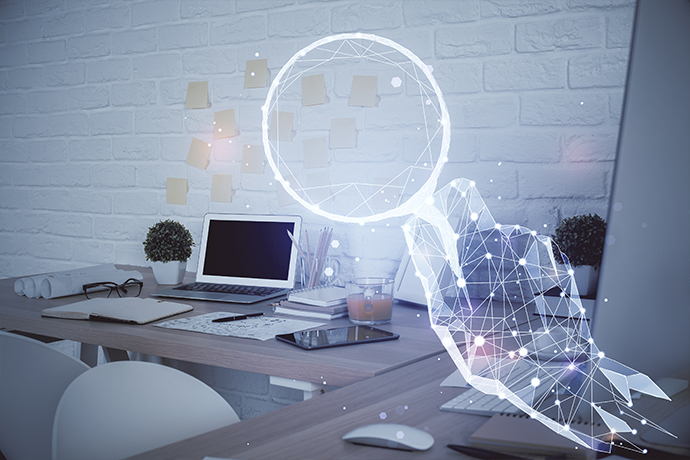 SPEAKERS
SPEAKERS
AI's job impact is growing. As AI advances, it will reshape industries, affecting routine and specialized tasks. Understanding this helps businesses and individuals adapt and thrive.

The impact of AI on jobs has increasingly become a key focus and point of interest. The further AI goes toward perfection, the greater its impact is likely to be on diversified industries in very different ways, reshaping the job market. The AI impact on jobs hits all activities, from simple routine tasks to highly specialized roles. Understanding how AI is going to affect future jobs is indispensable for both businesses and individuals since it gives them an idea of the changing landscape of employment and the kinds of skills that need to be developed if one is going to thrive in the new era.
Maybe one of the most noticeable impacts AI has on the job market is the mechanization of routine tasks. Artificial intelligence captures repetitive tasks in many various industries in an organization and assists employees in devoting more energy to complex tasks that will have much more difficult solutions to adopt. Manufacturing, for example, has Ad tolerance robots able to complete assembly line work much quicker and more efficiently compared to human workers. This shift, therefore, increases productivity and, by extension, minimizes human error, a variable that further raises the quality of products and services delivered.
While AI automates specific jobs, it also creates new job opportunities that did not exist before. Today's rapid growth in AI technology has started creating demands for professionals with expertise in the development of AI, machine learning, and data analysis—all crucial areas as much as cybersecurity. Moreover, AI is further allowing development into completely new industries for which experienced professionals will be required—for instance, autonomous vehicle manufacturing and AI-driven health solutions. These are all large, emerging areas that open a number of career opportunities to the suitably knowledgeable and skilled, underlining the need and usefulness of continuous learning within the modern workforce.
AI alone is also reshaping existing jobs besides creating new ones. The case is that so many professions end up integrating or applying AI tools that leverage the ability of workers to perform better. For example, AI-driven analytics in marketing give better insights into consumer behavior. It helps marketers develop more targeted and effective campaigns. Similarly, AI helps doctors diagnose diseases more accurately and come up with appropriate treatment plans at the individual level in healthcare. This exemplifies the permeation of AI across job functions that would mandate employees en route to develop a hybrid skill set featuring domain expertise and proficiency in AI technologies.

In the future, AI will grossly redefine the job in many sectors. With artificial intelligence, therefore, being integrated across business operations, it is going to change the kind of skills needed to perform many jobs. For instance, a role that would have previously required manual data entry or basic analytical skills now requires proficiency in AI tools and an understanding of complex algorithms. Workers will develop new competencies related to programming and data science to remain relevant within their respective professional fields. This shift puts forward the requirement of being continuously educated and trained so that workers can keep up with this technological development.
One more important aspect of whether AI will replace jobs is the fact that human-AI collaboration is securing a place in the sun. AI will be a very strong tool in the future to complement the abilities of humans and not completely replace them. For example, AI chatbots could provide customer service for mundane inquiries, thereby easing the human agent's job to handle other complex issues. This collaboration will let employees do tasks that require emotional intelligence, creativity, and problem-solving, hence improving job satisfaction and productivity. Understanding how AI can augment human work will become imperative for those businesses intending to fully reap its benefits.
The impact of AI will also be felt in job security and workforce dynamics. Though AI can create new job opportunities, at the same time, it is bound to replace jobs in certain sectors. The sectors that are likely to be hit by this transition currently heavily rely on routine activities; examples include manufacturing and transportation. This can then produce uncertainty and anxiety among workers, further making the case for robust support systems that would include retraining programs and social safety nets. From this kind of view, policymakers at all levels of government and business leaders are called upon to collaborate and work out responses to meet challenges with an eye toward a smooth transition into the AI-driven future of the workforce.
As we look into what is the future of work in an AI-driven world, obviously, how one approaches jobs and role descriptions will change. AI technologies are going to automate routine tasks and data processing. This will shift staff to the strategic and creative side of their jobs. For instance, administrative assistants can shift responsibilities from managing schedules to overseeing AI systems that maintain these tasks. This will be an evolution that will compel workers to learn new skills, adapt to changing job descriptions, and be lifelong learners who can remain flexible in the workforce.
The future of work will see a huge demand for tech-savvy professionals to design, implement, and manage AI systems. This surely implies that professions in relation to the development of artificial intelligence, machine learning, and data science will gain prominence. As companies are on the rise with AI integration into their operations, they look out for experts capable of developing not only those technologies but also ensuring their ethical and effective use. This trend will open up numerous opportunities for people with strong technical backgrounds while further encouraging many to acquire new skills to enable them to be competitive in job markets.
While technical skills will be critical, the future of work calls for an inordinate emphasis on soft skills. When more analytical and repetitive tasks are taken over by AI, creativity, emotional intelligence, and the problem-solving ability of human workers will be recognized. That's exactly why abilities such as communication, teamwork, and leadership will continue to grow in importance because workers will be required to learn to coexist and deal with AI systems while taking charge of the human elements involved in running a business. This holds true for the future of work, which is formulated by being aware of what is happening. Technical expertise has to be balanced against these crucial interpersonal skills.
Understanding the impact of AI on employment and the new world of work is important as we journey through this sea of technological revolution. In its wake, AI is automating job markets with routine tasks, creating opportunities, and reshaping existing jobs in several ways. Greater flexibility in the nature of available jobs, better collaboration between humans and AI, and changed notions of employment security and workforce structure characterize the emerging work arena. In so far as we prepare ourselves for such changes, continuous learning and the combination of technical with soft skills will help the cause tremendously. In the process, AI's capabilities can be leveraged to reach our full potential for a more productive, innovative, and adaptive workforce.
